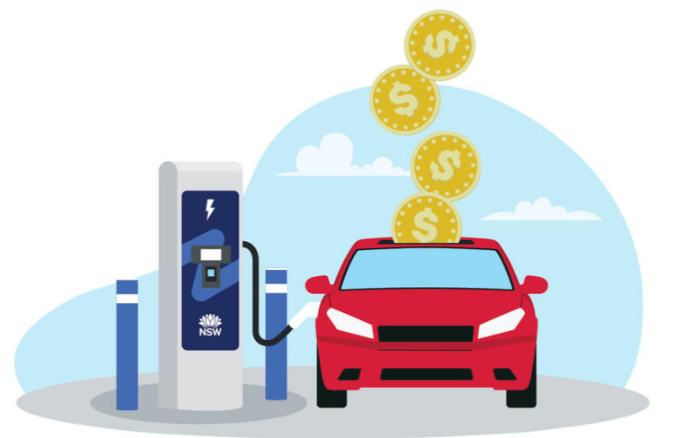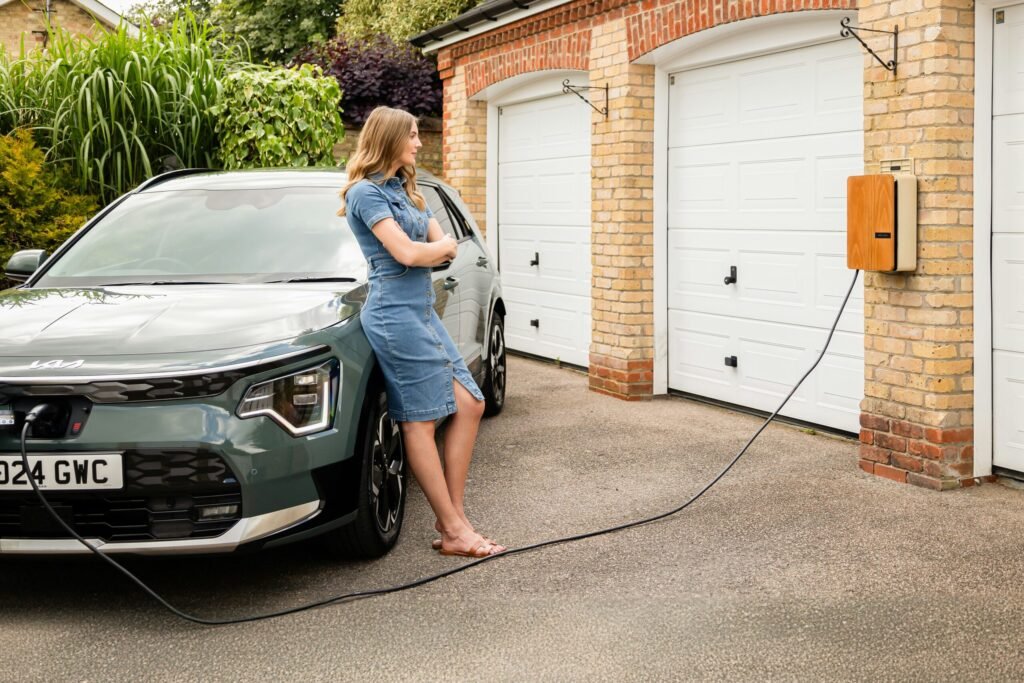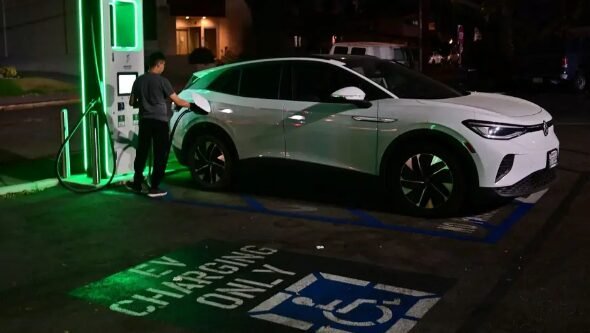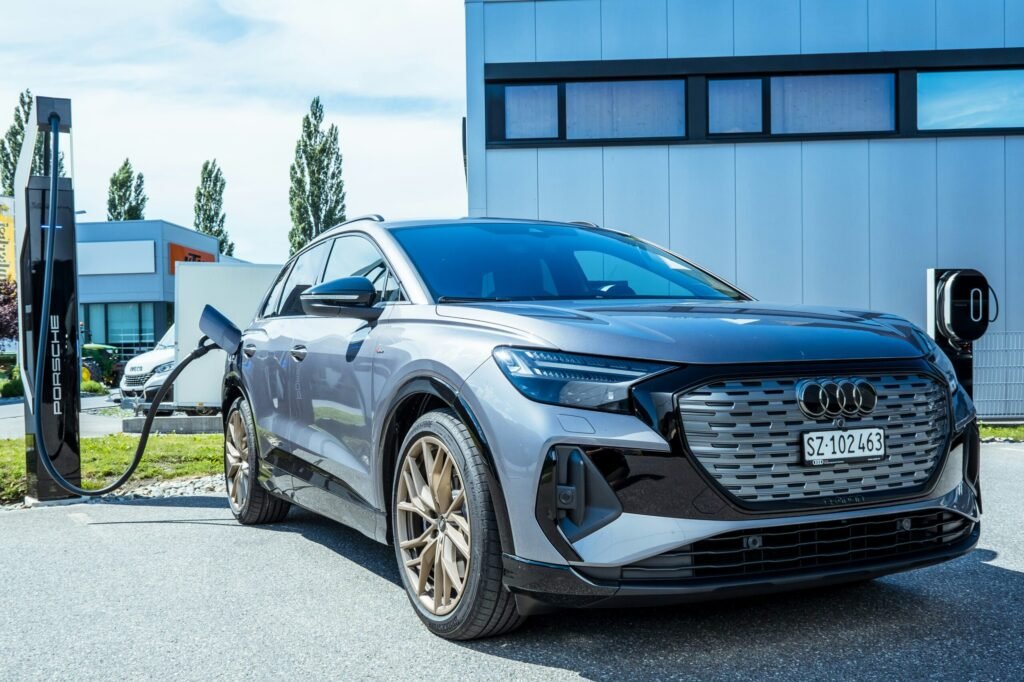Do Electric Cars Save a Lot of Money? As you consider switching to an electric vehicle, you’re likely wondering about the financial benefits. Driving an electric car can save you a substantial amount of money, primarily through lower fuel costs and reduced maintenance expenses.

With the rising costs of gasoline, electric vehicles offer a more economical alternative. According to the U.S. Department of Energy, charging an electric vehicle can cost as little as $3 to $5 per 100 miles, whereas driving a gasoline-powered car can cost around $12 to $15 per 100 miles.
Key Takeaways
- Lower fuel costs with electric vehicles
- Reduced maintenance expenses
- Significant savings on operating costs
- Economic alternative to gasoline-powered cars
- Environmentally friendly option
Do Electric Cars Save a Lot of Money?
One of the most compelling reasons to consider an electric car is the potential for long-term savings. While the initial purchase price might be higher than its gasoline counterpart, the overall cost of owning an electric vehicle (EV) tells a different story.
When evaluating the financial benefits of electric cars, it’s essential to consider both the upfront costs and the long-term savings.
Upfront Costs vs. Long-Term Savings
The higher upfront cost of electric vehicles is often a deterrent for potential buyers. However, this initial investment can be offset by the significant savings over the vehicle’s lifetime. Lower fuel costs, reduced maintenance expenses, and potential incentives can lead to substantial financial advantages.
A study by Consumer Reports found that EV owners can save between $6,000 to $10,000 over the life of the vehicle compared to similar gasoline-powered models. This is largely due to the lower cost of electricity compared to gasoline.
“Electric vehicles are generally cheaper to run, with savings on fuel and maintenance that can more than make up for their typically higher purchase prices.”
Consumer Reports
Total Cost of Ownership Analysis
To understand the true cost savings of electric cars, it’s crucial to conduct a total cost of ownership analysis. This involves considering all the costs associated with owning a vehicle, including purchase price, fuel, maintenance, and any applicable incentives.
| Cost Category | Electric Vehicles | Gasoline-Powered Vehicles |
|---|---|---|
| Purchase Price | $35,000 | $30,000 |
| Fuel Costs (5 years) | $3,000 | $8,000 |
| Maintenance Costs (5 years) | $2,000 | $3,500 |
| Total Cost (5 years) | $40,000 | $41,500 |
As shown in the table, while the purchase price of an electric vehicle might be higher, the savings on fuel and maintenance can result in a lower total cost of ownership over time.
Fuel Cost Savings: Electricity vs. Gasoline
By choosing an electric car, you can enjoy considerable savings on fuel, making it an attractive option for many drivers. One of the most significant advantages of driving an electric vehicle (EV) is the reduction in fuel costs. The cost of electricity to charge an EV is generally much lower than the cost of gasoline for a traditional car.

Cost Comparison: Charging vs. Filling Up
According to the US Energy Information Administration, the average cost of electricity for vehicles is about 4 cents per mile, whereas gasoline costs around 12 cents per mile. This significant difference in cost can lead to substantial savings over time. To put this into perspective, consider the following comparison:
- Electric Vehicle: 4 cents per mile
- Gasoline-Powered Car: 12 cents per mile
For instance, if you drive 15,000 miles per year, driving an electric car could save you around $1,200 annually on fuel costs alone, based on the aforementioned rates.
Optimizing Charging Costs: Home, Work, and Public Options

To maximize your fuel cost savings, it’s essential to optimize your charging costs. You can charge your EV at home, at work, or using public charging stations. Charging at home, especially during off-peak hours, can be one of the most cost-effective options. Some employers also offer free or discounted charging for employees, adding to the financial benefits.
Here are some strategies to optimize your charging costs:
- Charge your EV during off-peak hours to take advantage of lower electricity rates.
- Explore public charging options, some of which may offer competitive pricing or even free charging.
- Consider installing a home charging station to charge your vehicle conveniently and efficiently.
By understanding the cost comparison between charging an EV and filling up a gasoline tank, and by optimizing your charging habits, you can significantly reduce your fuel expenses and enjoy the economic advantages of driving an electric car.
Maintenance and Additional Financial Benefits
The financial benefits of driving an electric car are not limited to lower fuel expenses; there are several other perks that can enhance your long-term savings. As you consider making the switch to an electric vehicle (EV), understanding these additional advantages can help you make a more informed decision.

Fewer Moving Parts, Lower Maintenance Costs
Electric vehicles have fewer moving parts compared to traditional gasoline-powered cars. This simplicity translates into lower maintenance costs over time. With fewer components to replace or repair, you can save money on maintenance. For instance, EVs do not require oil changes, which can save you around $100 to $200 per year.
Here’s a comparison of typical maintenance costs for EVs versus gasoline-powered vehicles:
| Maintenance Item | Electric Vehicle | Gasoline-Powered Vehicle |
|---|---|---|
| Oil Changes | $0 | $500-$1000/year |
| Brake Replacement | Less frequent due to regenerative braking | Typical wear and tear |
| Fluid Checks | Fewer fluids to check | Regular checks required |
Federal and State Incentives for EV Owners
Many governments offer incentives to encourage the adoption of electric vehicles. In the United States, the federal government provides a tax credit of up to $7,500 for the purchase of an eligible EV. Additionally, some states offer further incentives, such as rebates or exemptions from certain fees. For example, California offers a rebate of up to $5,000 for purchasing an electric vehicle.
To give you a clearer picture, here are some incentives available in various states:
- California: Up to $5,000 rebate
- Colorado: Up to $5,000 in state income tax credits
- New York: Up to $2,000 rebate
Insurance, Resale Value, and Other Financial Advantages
Electric vehicles can also offer advantages in terms of insurance costs and resale value. Some insurance companies offer lower premiums for EVs due to their generally lower maintenance and repair costs. Moreover, EVs tend to retain their value well, potentially leading to higher resale values compared to traditional vehicles.

Here are some key financial advantages to consider:
- Lower Insurance Premiums: Some insurers offer discounts for EVs.
- Higher Resale Value: EVs tend to retain their value better.
- Access to HOV Lanes: In some states, EVs can use high-occupancy vehicle lanes even with a single occupant, saving time and reducing stress during commutes.
By considering these additional financial benefits, you can better understand the overall cost efficiency and long-term savings associated with driving an electric car.
Conclusion
Driving an electric car can be a cost-effective choice, offering significant savings on fuel costs, reduced maintenance expenses, and additional financial incentives. As you’ve seen, the economic advantages of electric vehicles are substantial, making them an attractive option for those looking to drive away in a cost-efficient and environmentally friendly vehicle.
So, do electric cars save a lot of money? The evidence suggests they do. With lower operating costs and various incentives, electric cars provide a practical solution for those seeking to reduce their expenses and environmental impact. You can enjoy the benefits of driving an electric car while saving money, making it a worthwhile consideration for your next vehicle.
FAQ
How much can I save by driving an electric car?
According to a study by Consumer Reports, you can save between $6,000 to $10,000 over the life of the vehicle compared to similar gasoline-powered models.
Are electric cars more cost-efficient than gasoline-powered cars?
Yes, electric cars are more cost-efficient, primarily due to lower fuel costs and reduced maintenance expenses. The U.S. Department of Energy states that charging an EV can cost as little as $3 to $5 per 100 miles, whereas driving a gasoline-powered car can cost around $12 to $15 per 100 miles.
What are the fuel cost savings of driving an electric car?
The average cost of electricity for EVs is about 4 cents per mile, whereas gasoline costs around 12 cents per mile, according to the US Energy Information Administration.
Are there any incentives available for purchasing an electric vehicle?
Yes, the IRS offers a tax credit of up to $7,500 for the purchase of an eligible electric vehicle, and some states offer additional incentives, such as rebates or exemptions from certain fees.
Do electric cars have lower maintenance costs than gasoline-powered cars?
Yes, electric cars have fewer moving parts than gasoline-powered cars, which translates to lower maintenance costs over time.
Can I save money on insurance by driving an electric car?
Electric cars can offer advantages in terms of insurance costs, although the savings may vary depending on several factors, including the insurance provider and the specific vehicle model.
How do electric cars retain their resale value?
Electric cars can retain their resale value well, making them a more valuable investment over time. However, resale value can depend on various factors, including the vehicle’s condition, mileage, and the overall demand for EVs.
What are the long-term financial benefits of owning an electric car?
The long-term financial benefits of owning an electric car include lower fuel costs, reduced maintenance expenses, potential incentives, and advantages in terms of insurance costs and resale value, all of which contribute to significant cost savings over the vehicle’s lifetime.






